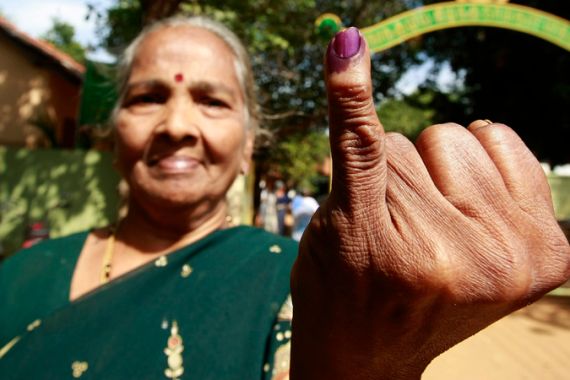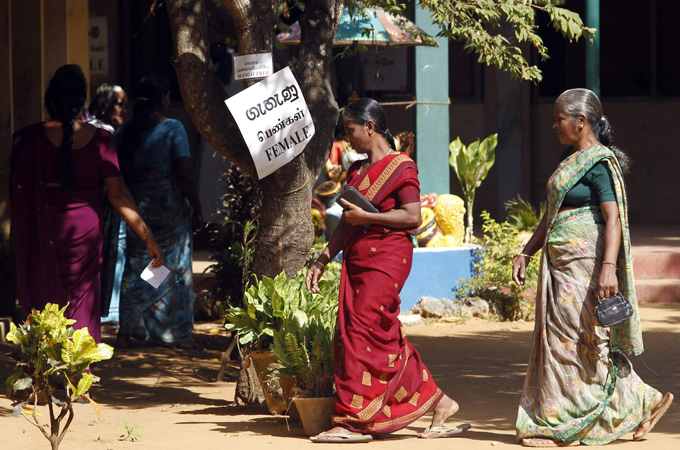Tamil party sweeps local election poll
TNA wins 20 out of 25 councils in Tamil-majority regions, as ruling party takes all seats in Sinhalese-majority areas.

 |
| The Tamil National Alliance won 20 local councils out of the 25 it contested [Reuters] |
A political party that was closely linked with the defeated Tamil Tiger rebels has swept local council elections held in areas ravaged by the country’s 25-year civil war, amid reports of intimidation and vote-buying, officials said Sunday.
The Tamil National Alliance (TNA) won 20 local councils out of the 25 it contested in the ethnic Tamil-majority north and east, the elections department said.
President Mahinda Rajapaksa’s ruling United People’s Freedom Alliance coalition, which won all 40 councils in the country’s ethnic Sinhalese-majority regions, secured five councils in mainly Tamil areas.
Saturday’s election assumed unprecedented national significance, with the main two rivals both seeing it as a confidence vote.
Analysys say the resounding victory consolidates the TNA’s status as an authentic representative of ethnic Tamils in negotiations with Rajapaksa’s ethnic majority Sinhalese-controlled government in sharing political power and post-war rehabilitation.
The party had appealed to voters to give it a mandate to demand self-rule in the Tamil-majority areas.
Rajapaksa’s ruling party, for its part, had hoped a victory for its allies would blunt calls for an international war crimes investigation, mostly coming from the US and other Western nations, and vindicate the harsh tactics that left thousands of Tamil civilians dead in the final months of the civil war, which ended in May 2009.
Rajapaksa already has rejected a demand by the TNA to allow Tamil control over local police and land.
‘Dignified political settlement’
“It clearly shows the Tamil people’s stand on political and development matters,” TNA parlimentarian Suresh Premachandran said of the election result.
He said the Tamils had given his party a mandate for a “dignified political settlement” and urged the government to respect the verdict.
Media minister Keheliya Rambukwella said that despite failing to win control of many councils in the north, the ruling party had taken a “stride forward” by getting many members elected.
“This is part of the peace dividend and participatory democracy that has manifested,” he said of the vote.
The clean sweep in ethnic Sinhalese-majority regions highlighted Rajapaksa’s immense popularity among Sinhalese more than two years after leading the army to victory, and also shows the ethnic polarization that still exists.
Alleged vote-buying
Election monitoring group Campaign for Free and Fair Elections said in a statement on Saturday that uniformed men suspected to be members of the military, which still has a large presence in the former war zone, were forcibly collecting voting cards, apparently to rig the vote.
It reported that such incidents took place in 20 villages.
People who refused to give away their cards “were beaten up and threatened to cut their throats out,” the group said.
It also observed men in uniform distributing food to people and asking them to vote for the ruling party.
In some areas, residents were paid five or 10 dollars in exchange for voting cards, it said.
Most people in the region are extremely poor after losing their families’ breadwinners and belongings in the war.
Rambukwella denied that the army was used for vote-buying, but said any credible complaints would be investigated.
Sri Lanka’s top officials, including Rajapaksa and cabinet ministers, had campaigned for minority Tamil votes.
The governing coalition insists it is committed to ethnic reconciliation, though none of its touted programmes toward healing has begun.